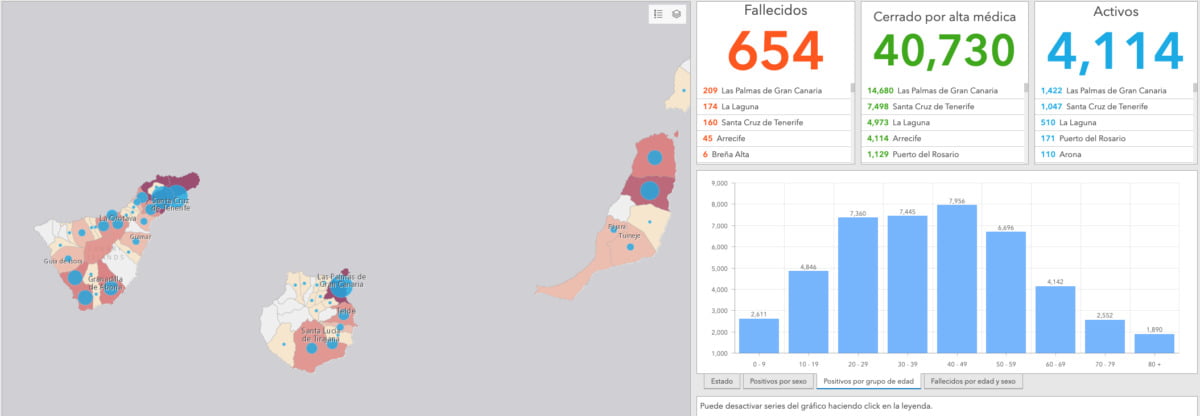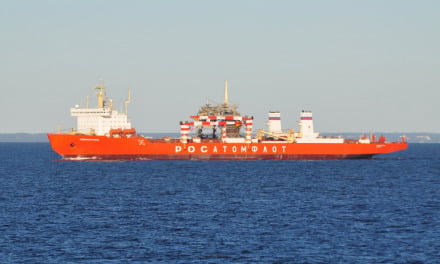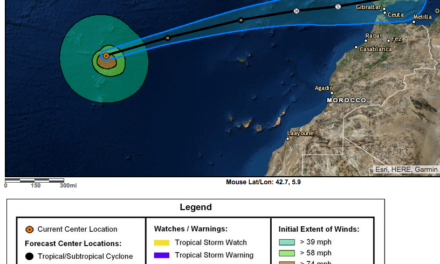Capacity within Intensive Care Units (ICU) on the Canary Islands is at high risk, health experts have warned. The Ministry of Health delivered its latest epidemiological report on Wednesday March 24 (with data consolidated up to the 23rd), in which all the epidemiological indicators are shown in orange, that is, medium risk, with red flags starting to appear.
The 14 day accumulated incidence (AI) both generally and in those over 65 years of age, as well as in the 7 day cumulative incidence have shown cause for concern. Though there are positive signs with hospital occupancy at low risk, indications are that ICU occupancy is now at high risk of filling up if things continue on the same course.
Breaking down the data by island, there are specifically three at high-risk for ICU occupation. The most worrying data presented is from Fuerteventura, with nearly a quarter, 22.73%, of the ICU beds occupied by COVID-19 patients. According to Grafcan data, occupancy on at the Fuerteventura General Hospital has grown steadily from the beginning of March, though remains stable, although not low, with just five hospitalised patients currently in critical condition. Of the 22 respirator units at this hospital, nine are occupied, and of those nine, five patients have COVID-19.
Fuerteventura’s high risk indicators include their 14-day AI at 179.57 cases per 100,000 inhabitants, their 14-day AI for those over 65 at 135.1 cases per 100,000 inhabitants and their 7-day AI at 99.39 cases per 100,000 inhabitants. This places Fuerteventura as the island with the most unfavourable data right now.
Tenerife follows with an ICU occupancy at 20.12%. The Hospital Universitario de Canarias currently has 24 COVID-19 patients in their intensive care unit, having slightly increased over recent days. Of their total of 53 available ICU beds, 45 are occupied, with more than half coronavirus patients. Of their total 606 hospital beds, 503 are occupied, 38 of them by COVID-19 patients. Tenerife’s other main Hospital Universitario Nuestra Señora de Candelaria has nine coronavirus patients in ICU beds with respirators out of a total of 63, though that number appears stable. Of their total 867 available beds 698 are occupied, 57 of them by COVID-19 patients. Tenerife’s 14-day AI stands at 151.52 cases per 100,000 inhabitants
Gran Canaria has reached 16.89% ICU occupancy. Mostly at the Doctor Negrín Hospital (due to its capacity), with 23 COVID-19 patients, a figure that has shown a small increase over recent days. There are only three beds available in their ICU out of the total of 62. The University Insular Hospital has 78 ICU beds with respirators, 15 of which have COVID-19 patients, with their ICU occupation looking stable for the moment. The Las Palmas de Gran Canaria private HPS – Perpetuo Socorro Hospital has five ICU beds with a respirator, where they are treating three COVID-19 patients and have two beds spare. The incidence in people over 65 is indicating high risk, the 14-day AI for this age group stands at 100.84 per 100,000 residents and the 7-day AI is at 54.3 cases for every 100,000 population.















